
Grizzly bear conservation supported by computing
Alejandra Zubiria Perez, who graduates this month with a master's in geography, focused her UVic studies on grizzly bear behavior.

Alejandra Zubiria Perez, who graduates this month with a master's in geography, focused her UVic studies on grizzly bear behavior.
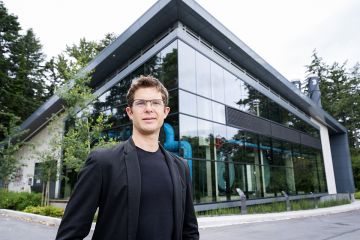
UVic civil engineering professor Ralph Evins is using machine learning to design energy-efficient buildings that don’t yet exist.
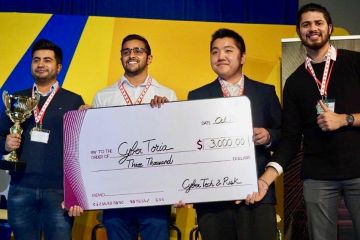
A team of four UVic students came home champions from a national competition in October, for a software solution to help small businesses achieve cybersecurity. Six finalist teams were invited to present their solutions at the People in Cyber Conference in Toronto on Oct. 19. The UVic team, which won the $3,000 grand prize, impressed the judges with a package that included a working web application—not just a concept
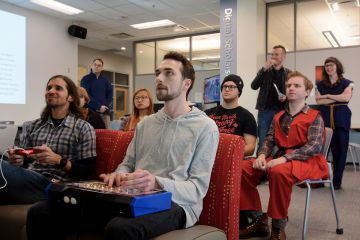
Research culminating in a Street Fighter tournament Jan. 26 at UVic put a different spin on video game culture. Humanities Dean Chris Goto-Jones, who started the project in 2010, has found that far from causing more violence, fighting games are a form of martial art that can make us better people.

English students in a fifth-year digital literary studies course turned to literature and DIY culture for inspiration to create video games as part of their class. They created two indie games: a campus-based locative app for mobile phones and a 2-D children’s game.
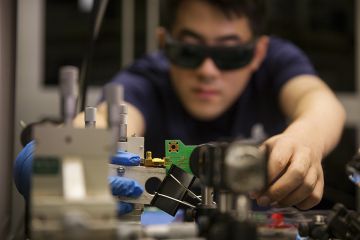
Somewhere between gold and glass lies a new material that could end a decade of stagnant computer speeds, suggests a University of Victoria engineer whose research is adding to that vision.
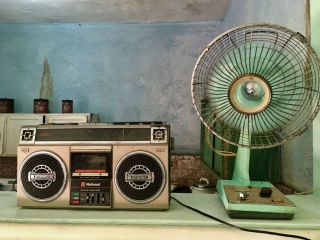
Fibre-optic cables, power lines and ecological impact are key factors in how music is produced and consumed. On Sept. 8, anthropologist Alexandrine Boudreault-Fournier with colleagues Joseph Salem and Jentery Sayers will join researchers from Europe, Asia and the Americas for the sound of music.

A UVic chemist has developed a breakthrough material that will make computers and smartphones faster, more durable and more energy-efficient. The new material allows computer chips to exist at a molecular level, with a technology known as light-induced magnetoresistive random-access memory (LI-RAM).

A UVic chemist has developed a breakthrough material that will make computers and smartphones faster, more durable and more energy-efficient.
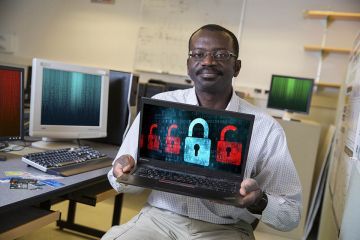
As digital technology becomes increasingly integrated and more advanced, so too does the threat to cyber-security. UVic’s Information Security and Object Technology research lab has been addressing this threat since 1999. Coordinator and research engineer Issa Traoré admits it’s a constant battle to keep ahead of hacker expertise and adaptability.
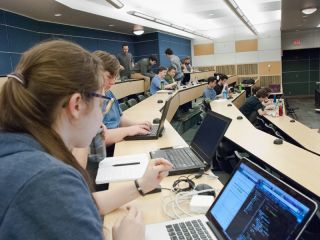
Game programming contests drive student interest, experience and skill—and are putting UVic on the map in the programming world On Saturday, Feb. 20, UVic played host to a virtual battle, attended by over 300 students and developers wanting to test their artificial intelligence programming skills. It was the third annual BattleSnake competition. In the classic arcade game Snake, a player maneuvers a growing “snake” around the computer screen. As the snake grows in size, it becomes more difficult for the player to avoid making the snake run into itself. BattleSnake builds on this simple game: as the snake eats apples, it grows in size. Run into a wall, your own tail, or another snake’s tail and it’s game over. But there’s a competitive aspect to this version: run head-on into another player’s snake and the longer one consumes the shorter one.